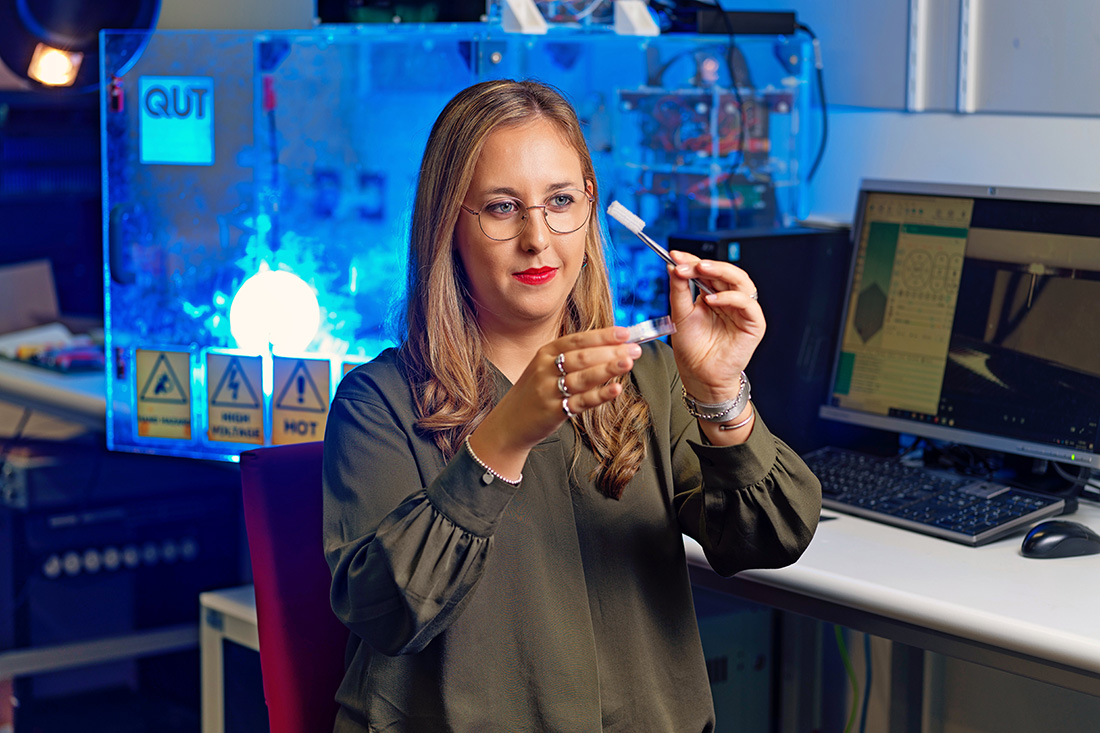
Our physics bridging program can help you meet the requirements to undertake tertiary-level studies.
Successfully completing the physics bridging program will provide you with the assumed knowledge in physics for QUT courses and meet the science prerequisite for courses in education. This program may also meet assumed knowledge or prerequisites for other institutions.
For the assumed knowledge or prerequisite subjects for QUT courses, check our guide for assumed knowledge.
Who should participate?
This program is for students who:
- require senior-level physics knowledge for their university studies
- need to update their physics knowledge.
Prerequisites
We recommend that you have completed Year 10 (or equivalent) mathematics at a satisfactory level before you start this program. Alternatively, you should consider completing our Mathematics Bridging Program before you enrol.

Registrations
Registration for Semesters 1 and 2, 2024 is now open.
To register your interest for future programs, email the bridging programs team at bridging@qut.edu.au
Program information
When
Semester 1, 2024
- Start date
- 27 February 2024
- Program end and exam date
- 30 May 2024
- Class days and times
- Tuesday and Thursday, 6-7.30pm. There will be a break from 1-5 April.
- Registration closing date
- 20 February 2024
Semester 2, 2024
- Start date
- 25 June 2024
- Program end and exam date
- 26 September 2024
- Class days and times
- Tuesday and Thursday, 6-7.30pm. There will be a break from 12-16 August.
- Registration closing date
- 18 June 2024
Delivery details
This program is delivered online with a combination of self-paced content, and two weekly online sessions.
Online learning resources will be provided in lieu of classes that fall on a public holiday.
Exams are included in the program duration and run in class times.
Fee: $1,500 per person (GST-free).
You must pay the full fee online by credit/debit card when you register.
FEE-HELP and HECS-HELP are not available for bridging programs.
Cancellations
To cancel your registration, you must apply in writing to bridging@qut.edu.au
The refund you receive will depend on when you withdraw.
Semesters 1 and 2
- If you withdraw before the start date of a program, your tuition fee will be refunded, minus $100 administrative fee.
- If you withdraw before the end of week four of the program, 50% of your tuition fees will be refunded.
- If you withdraw after week four of the program, you will not be eligible for a refund.
Summer Semester
- If you withdraw before the start date of a program, your tuition fee will be refunded, minus $100 administrative fee.
- If you withdraw before the end of week two of the program, 50% of your tuition fees will be refunded.
- If you withdraw after week two of the program, you will not be eligible for a refund.
We reserve the right to cancel the program under certain circumstances, such as low registration numbers. If this happens, we will advise you as soon as possible, and give you a full refund. We are not responsible for any expenses you may have incurred if the program is cancelled.
This is a preparatory program aimed at helping you gain the necessary knowledge, skills and competence to enter tertiary study with a substantial science component. The content is based on current senior secondary physics curriculum, which includes both classical and modern physics.
The program will give you an understanding of a variety of fundamental concepts, as well as providing you with the opportunity to think critically and scientifically. The course provides learning opportunities that focus on developing an understanding of the physical world. It is a program designed to develop your skills in:
- thinking
- reasoning
- logical process
- problem solving.
Through the program content, you will also develop an appreciation for the nature and the development of science, and its use and influence on society.
This program includes individualised support with an experienced physics teacher.
Learning outcomes
- Select, recall and use facts, rules, definitions and procedures drawn from classical and modern physics.
- Demonstrate knowledge and understanding of physical principles and theories.
- Demonstrate problem-solving skills.
Program content
The topics covered include:
- physical measurements and units
- kinematics
- mechanics
- waves and optics
- electricity
- magnetism
- modern physics.
Approaches to teaching and learning
In this program, you will learn through a problem-based approach and skill development tasks.
This program combines explicit teaching of mathematical rules, definitions and procedures, and includes learning opportunities in which you must apply the knowledge and skills you learn throughout the program.
The learning experiences in this unit rely on tasks drawn from a variety of real-world situations. These opportunities encourage you to recognise the usefulness of physics through its application.
Assessment
General assessment information
This program has four homework quizzes and two examinations. Formative assessment will support your learning by giving you an opportunity to practice tasks and learn from feedback before completing them for marking purposes. Formative assessment will also be applied to classroom tasks to check for completion, understanding and learning progression.
Feedback to students
In this program, you will receive feedback on your learning and assessment. Regular opportunities are provided for you to participate in problem solving tasks which will assist you to identify gaps in your knowledge and skills. These problem-solving sessions will help you prepare for summative assessment.
Workload and time commitment
Bridging programs provide a supportive learning environment in which content is covered in an intensive mode. As concepts build on each other, participation in all sessions is essential. In addition to scheduled classes, you will need to consolidate your understanding and complete assessment tasks in your own time. It is expected that you will spend at least the equivalent in class time to private study.
Resources
All resources are provided online via Canvas (QUT’s learning management system), which you will have access to for the duration of the course.
QTAC applications
If you're applying to QTAC, you'll need to submit your electronic result certificate to QTAC after you receive it.
Need more information?
For more information on the course, including registration and payment, contact our bridging programs team.